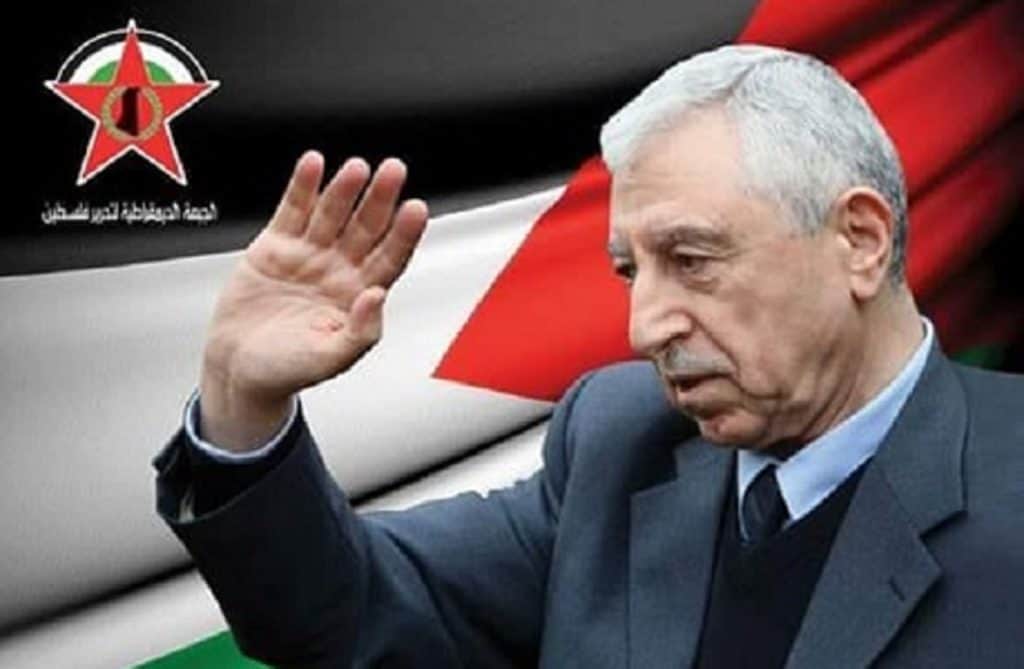By Denis Korkodinov
On March 16, 2020, a delegation of the Democratic Front for the liberation of Palestine (DFLP), led by Secretary General Nayef Hawatmeh, arrived in Moscow on an official visit. The purpose of the Russian visit of one of the leaders of the Palestinian “axis of resistance” was to discuss the consequences of the “deal of the century” and to develop a program to limit Israeli influence in the Middle East.
Such a format of the meeting testifies to the special interest of Moscow in resolving the Palestinian problem against the backdrop of the threat of escalation of the Arab-Israeli conflict in the near future.
It is worth noting that Nayef Hawatmeh,’s interest in Russia is caused, among other things, by his desire to organize comprehensive elections in Palestine. At least in his interview published on the website of the Sputnik news agency on April 11, 2019, he noted that the problems between the Palestinian political factions represented by the Hamas, Fatah, Islamic Jihad and other groups of influence, “are large and deep,” as a result of which they are unable to agree among themselves, which in the present conditions leads to a lack of a clear understanding of the content of the policy of resistance to the “deal of the century”.
For this reason, the mediating role of Russia could reconcile Palestinian organizations and serve as a guarantee of an active negotiation process between Fatah and Hamas. If this can be achieved, then Israel will face very great pressure from the Palestinian “axis of resistance”, which could change the course of the Arab-Israeli conflict in its favor.
In any case, Moscow is interested in establishing good relations with Palestine and with its help trying to neutralize Israeli influence in Syria. For this, not so long ago, the leader of the Islamic Jihad movement Zayad al-Nahal visited Moscow. Like Nayef Hawatmeh, the head of Islamic Jihad aims to secure the support of Russia in the event of escalation of the conflict with Israel. And, apparently, Russia provided the leaders of Palestinian organizations with guarantees of support.
One way or another, Russian Foreign Minister Sergei Lavrov, during a meeting with the Secretary-General of the Democratic Front for the Liberation of Palestine, unequivocally emphasized that Moscow favors the revival of Palestine within the 1967 borders. It follows that Russia is likely to contribute to the abolition of the “deal of the century”, which actually reduced the Palestinian territory by more than 20 percent and created the basis for the escalation of the conflict.
However, demonstrating its close attention to the Palestinian problem, the Kremlin is likely to close its eyes if Palestine takes the opportunity to strike back at Israel and try to restore the balance of power in the region.
Formally, Nayef Hawatmeh,’s visit to Russia was carried out in order to participate in a conference held with the support of the Center for the Study of the Middle East, headed by Vitaly Naomkin. Participants in the event discussed the economic and political consequences of the so-called “deal of the century” adopted by the White House administration in the context of geopolitical changes. However, the central theme of the negotiations was reduced to assessing the risk of a new escalation of the Arab-Israeli confrontation and determining its consequences at the national, regional and global levels.
During the meeting, the parties came to the conclusion that the “deal of the century” constitutes a gross violation of international norms and practices regarding territorial disputes. Nayef Hawatmeh and Vitaliy Naomkin emphasized that Washington is thus striving to impose its own vision of the Palestinian problem, not particularly going into the causes of the conflict and ignoring the adverse consequences that the “deal of the century” can lead to.
At the same time, the leader of the Democratic Front for the Liberation of Palestine noted that in the current conditions the organizations of the “axis of resistance” reserve the right at any time to seek the cancellation of the “deal of the century”, including using military force.
The participants in the Russian-Palestinian meeting did not ignore the situation in many countries of the Middle East, including Syria, Yemen, Libya, Iraq, Tunisia and Algeria. According to the parties, the events taking place in the region are a manifestation of the “period of national awakening”, when the peoples of all countries, through resistance to foreign pressure, demonstrate unity in achieving the goals of independence.
At the same time, religious and confessional differences within the emerging civil societies lose their relevance, giving way to national identity, the revival of which is prevented by some Western countries. The key problem of the region, however, continues to be international terrorism, which has become an instrument of military-political intrigue, organized by order of certain influence groups that are not interested in regional stability.
(The views expressed in this article belong only to the author and do not necessarily reflect the views of World Geostrategic Insights).







